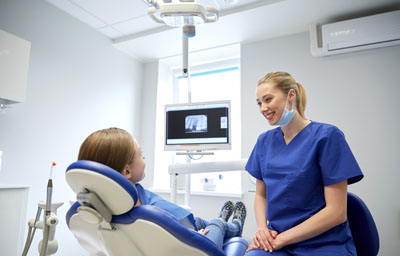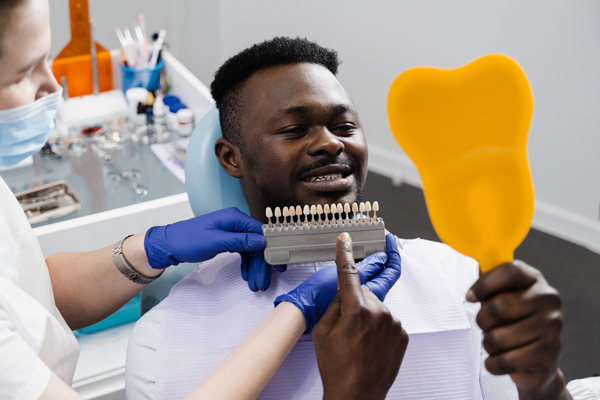Tips For Choosing a Dentist
 If you are looking for a dentist, do not simply schedule an appointment with the dentist closest to your home or office. Location is only one factor worth considering. Here's a look at everything else you should consider when selecting a dentist.
If you are looking for a dentist, do not simply schedule an appointment with the dentist closest to your home or office. Location is only one factor worth considering. Here's a look at everything else you should consider when selecting a dentist.
Considerations When Selecting A Dentist
Hours of Operation
Anyone who lives far away from the dentist that he or she is considering, the hours of a dental office will also be important to consider. Ideally, an individual will select a dentist who is fairly close to his/her home or office. However, if the best local dentist is somewhat far away, then the individual should still consider the individual's work schedule and the dentist's office hours. Some dentists are open on weekdays. Others extend their office hours to weeknights as well.
Personal Comfort is Extremely Important
If an individual is not comfortable interacting with the dentist and his or her staff, then the individual will dread going in for treatments. The individual should feel perfectly comfortable asking questions, posing concerns and requesting assistance. If the individual feels as though the staff or the dentist lack social graces, then it is best to move on to the next candidate.
Cost
While the cost of dental appointments is an important factor, it should not be a deal-breaker. Insurance can be a determining factor in which dentist one chooses. By calling us ahead of time, we can help determine if the patient has the correct insurance or explore other options.
Furthermore, it is important to find out if the insurance provider requires referrals for treatment with specialists and whether the dentist in question can provide such referrals.
Keep in mind that it might be worth the extra money to obtain treatment at a dental practice with comparably high prices. Those who offer extremely cheap pricing often provide low-quality treatment or require the patient to wait extended periods of time to be seen.
The Issue of Emergency Care
Get a gauge as to how prospective dentists will respond when the patient needs emergency treatment. Find out if they will provide assistance at night, on weekends or during regular office hours. The bottom line is a dentist should not refer patients to a hospital emergency room for treatment.
Is the Dentist Qualified?
Find out about the dentist's credentials and experience. The office should have this information readily available. Furthermore, the office should provide prospective patients with information pertaining to infection control. If staff members are uneasy answering such questions or if the patient is uncomfortable with their responses, move on to the next candidate.
If the patient cannot reach the office on the phone and the website is lacking in information, reach out to the insurance carrier or the local dental society for more information about the dentist's qualifications.
Drop on by
When in doubt, schedule an appointment for a cleaning and an evaluation of the dental office. Take a look around, interact with the staff and evaluate the office's merit. If the patient finds the practice is messy, has numerous patients waiting to be seen or exhibits unprofessional practices, do not return for a subsequent visit.
Recent Posts
Our dental office provides preventative care to patients with the goal of helping them maintain healthy teeth and gums. We do so by cleaning teeth and removing plaque/ tartar. This allows us to help our patients avoid getting cavities or gum disease.Also, by cleaning teeth on a regular basis, we make it possible to prolong…
A general dentist might recommend a dental implant if you have lost a tooth. This is the only tooth replacement option that stops the bone tissue loss that takes place when teeth fall out. This loss is the result of the structures that once held the lost tooth in place no longer getting the stimulation…
Curious about how to prevent cavities? Continue reading to learn some tips on how to prevent tooth decay. According to the Centers for Disease Control, dental cavities affect one out of every four adults, and more than half of all teens in the United States have had a tooth filled. Oral health is often overlooked,…
Tooth decay does more damage than simply breaking down your teeth. It can lead to infections that can spread to the other parts of the body, it can increase your risk of heart disease and it can weaken your immune system. Good oral hygiene and biannual trips to the dentist are essential when it comes…
 If you are looking for a dentist, do not simply schedule an appointment with the dentist closest to your home or office. Location is only one factor worth considering. Here's a look at everything else you should consider when selecting a dentist.
If you are looking for a dentist, do not simply schedule an appointment with the dentist closest to your home or office. Location is only one factor worth considering. Here's a look at everything else you should consider when selecting a dentist.
